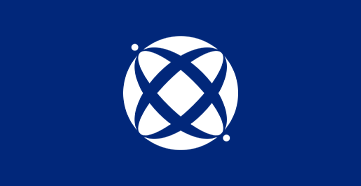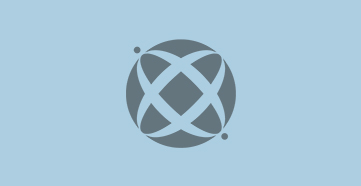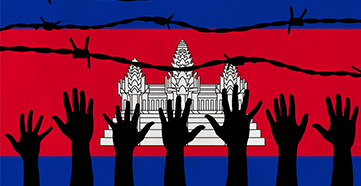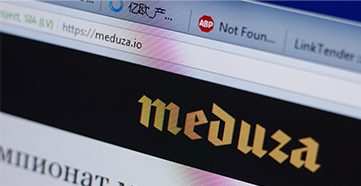|
|
The current era of technology and reachable-everywhere-and-anytime lawyers imposed its rules. This wide adoption of instant messaging in some of the Middle East jurisdictions, including the UAE, has been encouraged and regularized by legislation and court decisions that afforded validity and evidentiary weight to instant messaging and electronic communications on equal footing with conventional means of communication and written documentation.
IBA Annual Conference Paris 2023
The Italian Communications Authority (AGCOM) has initiated proceedings for online copyright infringement on the application of publishing industry rights holders. The applicants claimed that public channels on the instant messaging platform illegally made thousands of journalistic and literary works from their catalogues available for downloading. AGCOM’s moral persuasion proved pertinent, as Telegram spontaneously removed them. Most recently, emergency legislation has introduced new provisions expanding A
This topic explores the growing legal complexities surrounding the prosecution of owners and issuers of encrypted chat messenger services, with a focus on recent high-profile cases, such a EncroChat and Telegram. It will examine the balance between privacy, security and law enforcement, and discuss the implications of these prosecutions for service providers, users and regulatory frameworks.
27th Annual Transnational Crime Conference
Legislators and regulators have intensified their efforts to drive social media platforms towards ‘good behaviour’ in response to concerns about the harms they cause, as Global Insight reports.
Jun 24, 2021
This article discusses the technology and data related developments which made headlines recently and have the potential of changing the way companies do business in India.
The article examines the Competition Commission of India’s (CCI) decisional practice in cases of abuse of dominance in relation to big tech companies. The authors note that the CCI has adopted a cautious approach, and has on certain occasions expressed its reluctance in early intervention in a nascent sector. The article examines the need for the CCI to be driven by a fact-based approach in light of the jurisprudence from other mature regulators.
Jun 12, 2024
The new Foreign State Immunity Law 2023 of the People’s Republic of China came into force on 1 January 2024. This shifts the country (as well as its special administrative regions, Hong Kong and Macau) away from absolute state immunity to restrictive state immunity, bringing it more in line with the relatively prevalent practice among the international community. This article discusses the status of state immunity in public international law, analyses the new law’s provisions and examines practical challenges that will be faced by those seeking to utilise this law to enforce judgments or awards against foreign states and state entities, and the new law’s innovations that go beyond the United Nations Convention on Jurisdictional Immunities of States and Their Property of 2004 and the UK State Immunity Act 1978.
Dec 20, 2023
This paper dissects in detail the recently passed Nigeria Arbitration and Mediation Act 2023. Specifically, it analyses and explains provisions introduced into the Act which aligns the Act with global arbitration best practices; and the repeal of old provisions that do not meet the standards of global arbitration best practices, or that can be described as archaic.
IBA Global Insight April/May 2017 - Reporting from Athens and Lesvos, Global Insight met lawyers on the frontline of Europe’s refugee crisis as they attempt to gain access to those in greatest need of legal assistance.
The chaos caused by what police believe was a lone man’s killing of four people near Westminster in London has once again stirred the debate on the boundaries of the law and the remit of government bodies intended to prevent terror attacks.
At the centre of the debate is messenger service WhatsApp, which the attacker is thought to have used minutes before driving a car onto the busy pedestrian lane on Westminster Bridge.
Jun 03, 2021
By Kingshuk Bannerjee. Under the current legal framework in India, arbitrability is the norm and non-arbitrability the exception. The Indian Arbitration Act, which is largely premised on the UNCITRAL Model Law on International Commercial Arbitration 1985, adopts the globally preferred approach of minimal judicial intervention. That said, non-arbitrability is, undoubtedly, a thorn in the side of arbitration.
Dec 23, 2020
The International Bar Association’s Human Rights Institute (IBAHRI) strongly condemns the execution of Ruhollah Zam, an Iranian dissident journalist and editor of the website and Telegram channel AmadNews. Mr Zam was arbitrarily arrested in October 2020 and sentenced to death for ‘spreading corruption on earth’. The sentence was confirmed on 8 December and he was hanged on 12 December 2020.
On 1 June 2020, the United States Supreme Court issued its opinion in GE Energy Power Conversion France SAS v. Outokumpu Stainless USA, LLC (GE Energy), holding that non-signatories to an arbitration agreement can compel arbitration of agreements that are subject to the Convention on the Recognition and Enforcement of Foreign Arbitral Awards (New York Convention or simply ‘Convention’) by relying on traditional legal and equitable principles.
Jan 09, 2024
This article reviews the recent European Union regulations, namely the Digital Services Act and the Digital Markets Act which regulate digital platforms with operations in Europe, from different perspectives. Likewise, the article revises some regulatory projects in Brazil and the United States, before turning to Argentina, where the regulation of the intermediaries’ responsibility is an issue of current relevance. Due to the lack of an ex-ante regulation regarding these topics, this article goes over some of the cases treated with consumer protection regulations as well as with antitrust law and data privacy provisions.
Like many countries around the world, Nigeria was forced to impose a lockdown in Lagos (Nigeria’s commercial hub) and Abuja (Nigeria’s capital city) to combat the spread of Covid-19. The government’s ban on public gatherings and interstate travel resulted in the judiciary’s suspension of court sittings from March to May 2020, except for hearings of cases that were considered urgent, essential or time-bound.
This article outlines what to expect in Ukrainian legal market in the course of the next year.
Feb 21, 2019
The International Bar Association’s Human Rights Institute (IBAHRI) is deeply concerned by the continued detention of human rights lawyer, Amirsalar Davoodi, without legal representation. A regular user of social media platforms as well as his Telegram channel, Without Retouch, to speak out about human rights concerns in Iran, Mr Davoodi was arrested in the country on 20 November 2018 and charged with crimes against national security. Access to his lawyer has been denied and family visits left wanting.
Aug 13, 2020
The International Bar Association’s Human Rights Institute (IBAHRI) condemns the detention and use of force against peaceful protesters and journalists in the Republic of Belarus, following the announcement of the initial results of the presidential elections on 9 August 2020. According to the Central Election Commission of Belarus, the elections results indicate that incumbent President Alexander Lukashenko won with 80.23 per cent of votes. Several organisations, including…
The landscape for potential human rights abuses by digital surveillance is changing as the methods used grow ever more powerful. Global Insight considers this evolution and the need for regulatory frameworks to adapt.
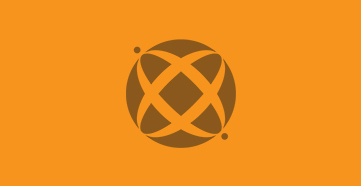
Dec 21, 2023
India is increasingly becoming a key jurisdiction for foreign investment. To keep the momentum going, the Indian government has consistently attempted to keep the business environment friendly and less burdensome. This includes: a reduction in corporate tax rates; easing the liquidity problems of non-banking financial corporations and banks; foreign direct investment policy reforms; and easing compliance norms – all with the aim of promoting ‘ease of doing business in India’. After more than a decade, India’s competition law has recently been amended, bringing about key changes that will impact businesses. The 2023 Amendments to the Indian Competition Act 2002 (the Act) introduce changes that several antitrust jurisdictions are still considering. The 2023 Amendments are a mixed bag of changes: several are business friendly – such as commitments and settlements, expedited merger review timelines and introducing a leniency-plus regime – while others aim to achieve greater regulatory oversight and stricter enforcement, such as deal value thresholds, penalties on global turnover and increased liability for hubs in ‘hub-and-spoke’ cartels. The Competition Commission of India (CCI), the body entrusted with the responsibility to nurture and maintain well-functioning markets that facilitate the growth manifested by the Indian government, must adopt a balanced approach to ensure that competition enforcement does not get in the way of ‘economic growth’ as envisaged under the Preamble of the Act. This article examines the impact of the 2023 Amendments on the Indian market. In particular, the writers examine the CCI’s approach in adopting these tools and tailor it according to the requirements of the Indian economy.
Aug 29, 2023
The most recent threat to democratic rule in Cambodia came in the form of July’s national election, which was held against the background of an ongoing media crackdown.
May 24, 2021
The international community breathed a collective sigh of relief on 23 April when opposition leader Alexei Navalny ended a 24-day hunger strike in prison after finally receiving medical care. Yet ongoing efforts to suspend his political organisation and restrict other fundamental freedoms threaten to cripple Russia’s already deteriorating human rights situation.
Aug 20, 2024
With regulators around the world stepping up their focus on off-channel communications, all businesses must ensure they’ve appropriate policies and procedures in place, as In-House Perspective reports.
Jan 23, 2023
Last autumn, US antitrust agencies blocked a proposed deal between two major book publishers. Global Insight examines the case in the context of the activist approach being taken by regulators, especially towards Big Tech.
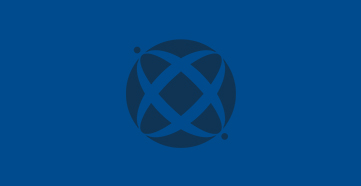
Jun 01, 2022
As witnessed in a series of studies, analyses and papers published over the course of 2019−2020, an international consensus was emerging that the public policy concerns arising consistently in connection with digital platforms either required a fundamental rethink of how competition policy should address such concerns or provide the rationale for the creation of a sui generis regulatory regime. If the latter approach were to be chosen, this would mean that competition policy would be left with a complementary role to play, and one that would logically be directed at new modes of commercial behaviour. The genesis of such a public policy choice in the European Union was brought into sharp focus by the protracted competition law investigation into various commercial practices of Google in internet search by the European Commission (the ‘Commission’), which had been ongoing since 2010 and which had to wait to be resolved by the vindication of the Commission’s 2017 decision before the General Court as late as November 2021. In response to the demands by EU Member States that appropriate action be taken to compensate for the slow and arguably ineffective application of EU competition rules, a draft regulatory package was introduced by the Commission in December 2020 that would regulate key problematic business practices of large digital platforms across the EU. Whereas the so-called Digital Services Act was to deal with critical public policy issues that were consumer-facing, it was the Digital Markets Act (DMA) that laid out the unique regime that would apply economic regulation to large digital platforms. The object of this article is to: (1) provide an outline of the defining elements of the DMA; and (2) identify key aspects of that legislation, whether from a substantive, procedural or institutional point of view, where the intended outcomes of the DMA might be compromised.
The approach currently adopted by competition authorities around the world against so-called big tech hides two main risks, namely the delay in respect of innovation processes that may cause the actions undertaken turn out to be vain and the antitrust over-enforcement. This second feature, particularly, is strictly related to the position that enforcers are prone to adopt on competition law goals, which debate has massively re-emerged in the present context
Apr 04, 2024
The large-scale war waged by Russia on Ukraine has been going on for over two years and has caused enormous damage. The total amount of damage to Ukrainian citizens, businesses and the state itself is yet to be quantified. It already appears to be in the range of hundreds of billions of dollars. It is said that even the total value of all frozen Russian assets in different jurisdictions is far below the value of the damage caused by the Russian aggression against Ukraine.
The continued proliferation of disinformation online – often referred to as ‘fake news’ – has this summer led to increased scrutiny and action from governments.
May 14, 2020
When Roya TV in Jordan aired a report highlighting the concerns of workers over the economic impact of the country’s Covid-19 curfew, the channel was expecting peak viewership as the public stayed home. But, just hours later, two of its top executives were arrested, part of an emerging trend across the Middle East whereby those questioning the official response to the pandemic are penalized and, on occasion, thrown behind bars.
|

